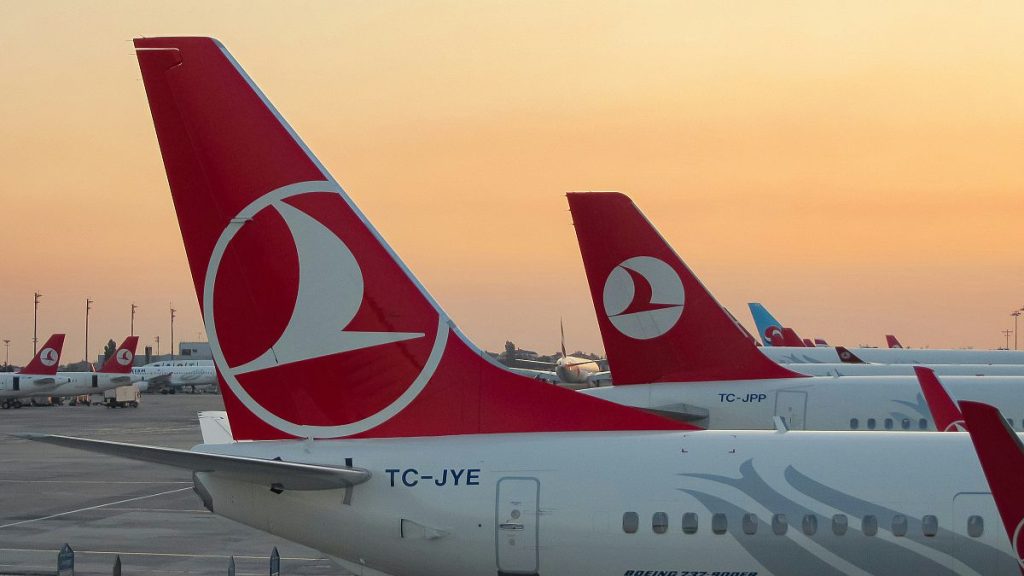European airlines have been struggling to compete with their Chinese counterparts due to restrictions on flying over Russian airspace. The invasion of Ukraine in 2022 led to countries imposing sanctions on Russia, resulting in limited access to Russian airspace for many airlines. Only a select few carriers, including Air Serbia, Turkish Airlines, Pegasus Airlines, and Belavia, have been granted exemptions to fly over Russia due to diplomatic ties. This has forced airlines to take alternative routes, leading to longer flight times, increased operational costs, and higher airfares.
Among the airlines that have been affected by the restrictions on flying over Russian airspace are Air France-KLM, British Airways, Finnair, and Lufthansa. These airlines have had to add one to three hours to their journeys by flying further south over regions like Turkey, Central Asia, China, and Mongolia. For example, BA’s flight between New Delhi and London now takes an extra hour, while Finnair’s Helsinki to Tokyo route has been lengthened by four hours. Longer flights mean increased fuel consumption, longer shifts for cabin crew and pilots, and ultimately higher costs for airlines, which have been passed on to consumers in the form of higher airfares.
In contrast to the limitations faced by European airlines, Chinese carriers have been able to utilize Russian airspace to reach destinations in Western Europe. Airlines such as Beijing Capital Airlines, China Eastern, China Southern, Air China, Xiamen Air, and Hainan Airlines have been able to maintain their routes over Russia. Additionally, carriers from the Middle East, including Emirates, Etihad, and Qatar Airways, have also continued to operate in Russian airspace. This discrepancy in access to Russian airspace has put European airlines at a disadvantage in terms of competitiveness and operational efficiency.
The restrictions on flying over Russia have had a significant impact on the aviation industry, not just in terms of flight times and costs, but also in terms of diplomatic relations and market competitiveness. European carriers have faced challenges in reinstating flights to pre-pandemic levels between Europe and China, with the general manager for Greater China at Air France-KLM noting that European airlines are not able to compete on a level playing field with their Chinese counterparts. With only a few European carriers granted exemptions to fly over Russia, the majority of airlines have had to adjust their routes, resulting in longer journey times, increased expenses, and higher airfares for passengers.
The limitations on flying over Russian airspace have forced airlines to rethink their flight paths and operational strategies. As a result, airlines have had to factor in these changes when planning routes between Europe and Asia, which has led to longer and costlier journeys. Despite the challenges posed by the restrictions, airlines such as Air Serbia, Turkish Airlines, Pegasus Airlines, and Belavia have been able to maintain their routes to Moscow, St. Petersburg, and other destinations in Russia due to their diplomatic ties with the country. However, the overall impact on the aviation industry, including the increased costs and competitive disadvantage for European airlines, remains a significant concern for the industry as a whole.
In conclusion, the restrictions on flying over Russian airspace have had far-reaching consequences for the aviation industry, impacting flight times, costs, and market competitiveness. European carriers have faced challenges in competing with Chinese and Middle Eastern airlines that have been able to continue using Russian airspace, while the majority of European airlines have had to take alternative routes, resulting in longer journeys and higher expenses. The implications of these restrictions go beyond operational challenges, affecting diplomatic relations and the overall efficiency of the aviation market. As airlines navigate these changes, it remains to be seen how the industry will adapt and evolve in response to the evolving dynamics of international airspace restrictions.









